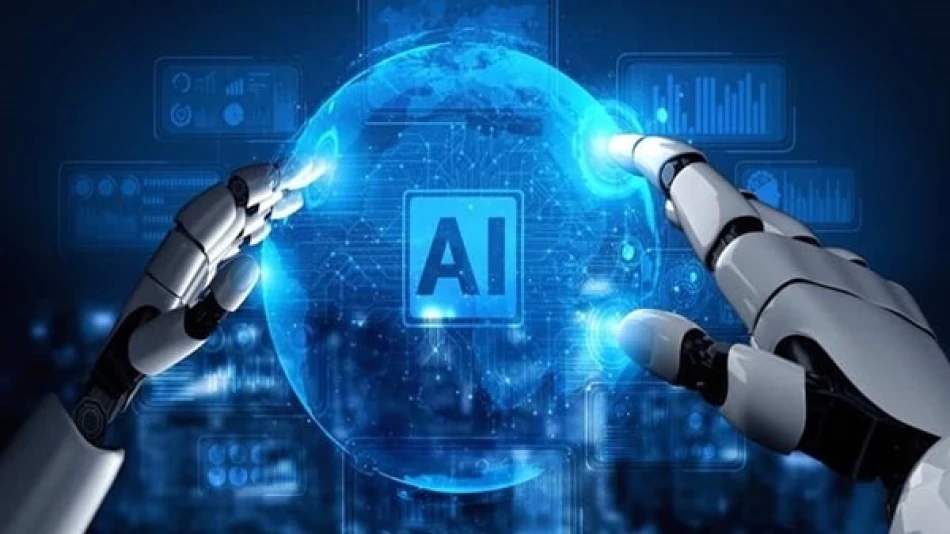
UN Establishes International AI Task Force to Shape the Future of Artificial Intelligence
UN Creates Global AI Expert Panel to Navigate Technology's Democratic Risks
The United Nations General Assembly has established an independent scientific panel on artificial intelligence, marking a significant step toward international coordination on one of the most transformative—and potentially destabilizing—technologies of our time. The 40-member expert group will produce annual assessments to guide global policy decisions as AI's rapid advancement raises urgent questions about democracy, human rights, and societal control.
A Response to Growing Democratic Concerns
The panel's creation reflects mounting anxiety among world leaders about AI's unchecked development. Revolutionary technologies that seemed like science fiction just years ago are now reshaping elections, labor markets, and information ecosystems at breakneck speed. The UN's move comes as governments worldwide grapple with regulating systems they barely understand, while tech companies race ahead with minimal oversight.
This initiative stems from the "Pact for the Future" commitment made by UN member states in September, which recognized the urgent need for international dialogue between governments and industry players. The timing is critical: AI capabilities are advancing exponentially, but regulatory frameworks remain fragmented and reactive.
What the Panel Will Actually Do
The Independent International Scientific Panel on AI will deliver evidence-based scientific assessments that analyze existing research on AI's promises, risks, and implications. Crucially, these annual reports will be advisory rather than binding—a compromise that allows for international cooperation without triggering sovereignty concerns from major powers.
The 40 experts, who will serve three-year terms, face the challenging task of translating complex technical developments into actionable policy guidance. This mirrors successful models like the Intergovernmental Panel on Climate Change (IPCC), which has shaped global environmental policy for decades through scientific consensus-building.
Global Regulatory Race Intensifies
The UN's move comes as major economies pursue divergent AI governance strategies. The European Union has implemented comprehensive AI legislation, while the United States favors industry self-regulation with targeted interventions. China continues developing AI capabilities within its state-directed framework, and emerging economies struggle to keep pace with both technological development and regulatory needs.
This fragmented approach creates risks for global stability and economic competition. Companies operating across borders face conflicting requirements, while nations worry about falling behind in the AI race or losing control over critical technologies.
Beyond Technology: Democracy at Stake
The panel's focus on democratic threats reflects growing evidence that AI systems can manipulate information, automate surveillance, and concentrate power in unprecedented ways. Recent elections worldwide have featured AI-generated disinformation campaigns, while authoritarian governments increasingly use AI for social control.
UN Secretary-General António Guterres praised the panel as "an essential link between cutting-edge AI research and policy-making." This connection is vital as the gap between technological capability and policy understanding continues to widen.
Market and Investment Implications
For investors and technology companies, the UN panel signals a shift toward more coordinated international oversight. While the reports won't be legally binding, they will likely influence national regulations and international agreements. Companies should expect increased pressure for transparency, ethical AI development, and cross-border regulatory compliance.
The panel could also help standardize AI risk assessments globally, potentially reducing regulatory uncertainty that currently hampers long-term investment planning. However, it may also legitimize stricter controls on AI development and deployment, particularly in sensitive sectors like defense, healthcare, and finance.
The Challenge Ahead
The panel's success will depend on its ability to build genuine international consensus while maintaining scientific credibility. Previous attempts at global technology governance have often stalled due to geopolitical tensions and competing national interests. The AI panel must navigate these same challenges while addressing a technology that evolves far more rapidly than traditional diplomatic processes.
With nominations for the 40 expert positions opening soon, the selection process will be closely watched as an early indicator of whether this initiative can transcend political divisions and deliver meaningful guidance for humanity's AI future.
Most Viewed News

 Layla Al Mansoori
Layla Al Mansoori






